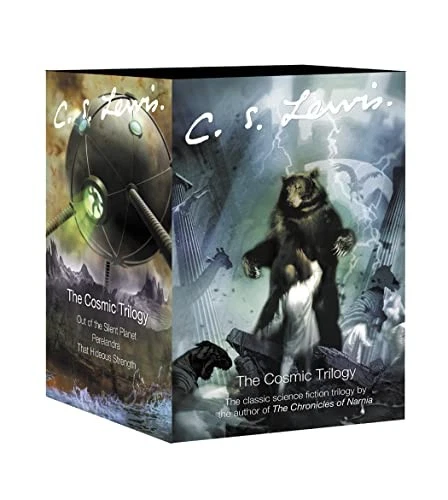Vault Of The Ages, Chapter 11.
Lenard, escaped from his Dalesmen captors, leads his Lann warriors into the City. When one warrior mumbles that such places are cursed, Lenard snaps that the power of their own gods is with them. The warrior replies:
"'Our gods are far away in the north...'" (p. 107)
- but their "Doctor," i.e., priest, claims to carry what he calls "'...the House of Jenzik...'" (ibid.) with the god in it. After chanting ancient words over "...a small iron box...," (ibid.) he claims that he and his companions are now guarded against spells.
Carl thinks that the chanted words:
"...must be in the old language itself, which had changed greatly since the Doom." (ibid.)
But might they be even older? Latin? What is in the box? The god's name begins, "Je..." Biblical names beginning with "J" are derived from the Mosaic tetragrammaton. (Carl thinks that he makes out a few words but many English words have Latin roots.)
If someone who has been displaced or exiled believes that he has left his gods behind, then there are several possible solutions:
a god can be carried around or made to be effectively present;
other gods are really the same gods under different names;
one god is omnipresent.
Christian slaves in the Roman Empire had the first and third solutions. One god can be both omnipresent and also specially, sacramentally, present in material form in a particular place or places.
In Chapter 1 of Perelandra, Lewis as narrator mentions a mysterious being called Maleldil, obeyed elsewhere in the Solar System, adding:

Religions tend to become more "general" over time -- eg., the Roman Capitoline Triad. Exceptions -- Japanese shinto comes to mind -- are more common in countries that were isolated for long periods.
ReplyDelete